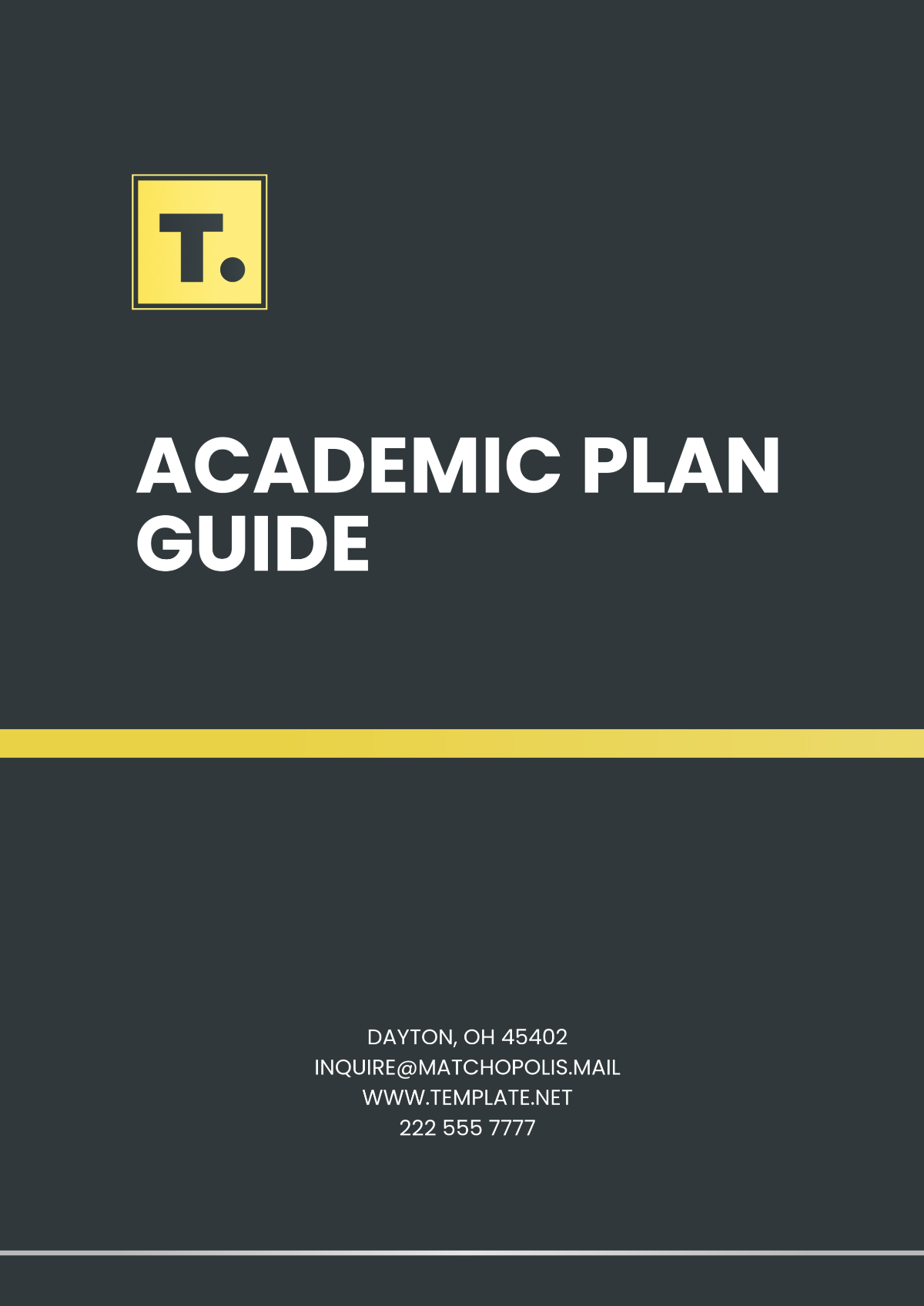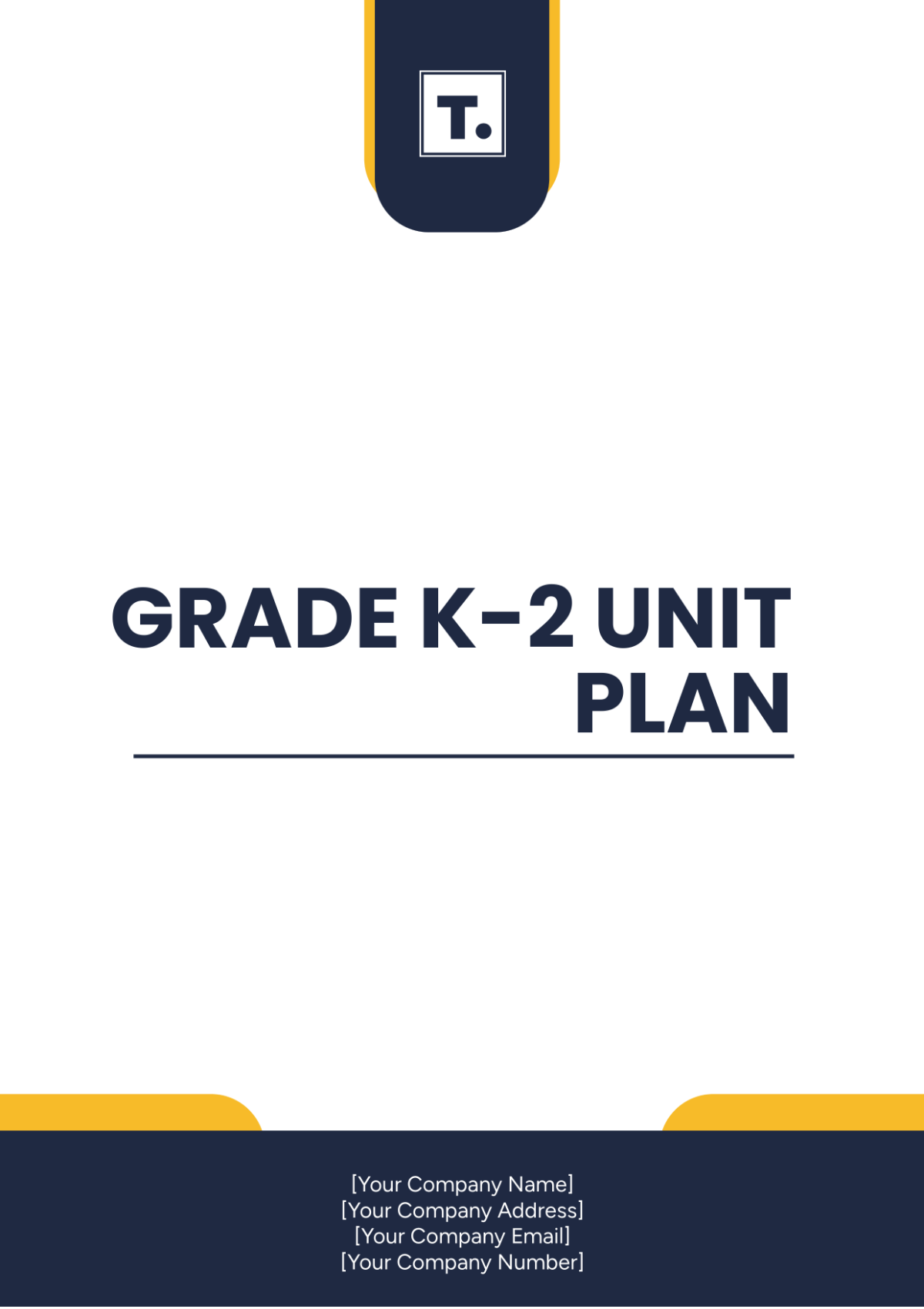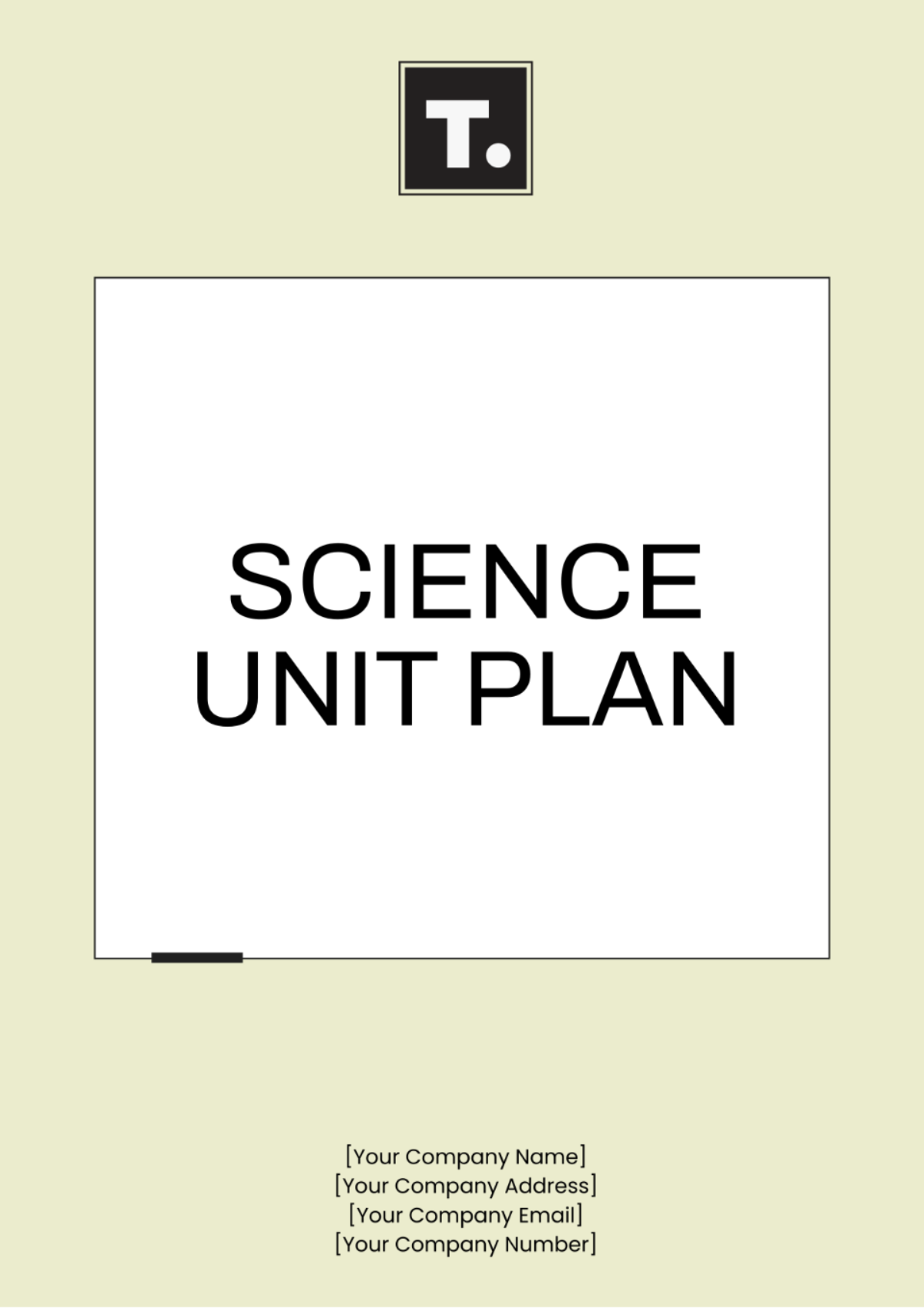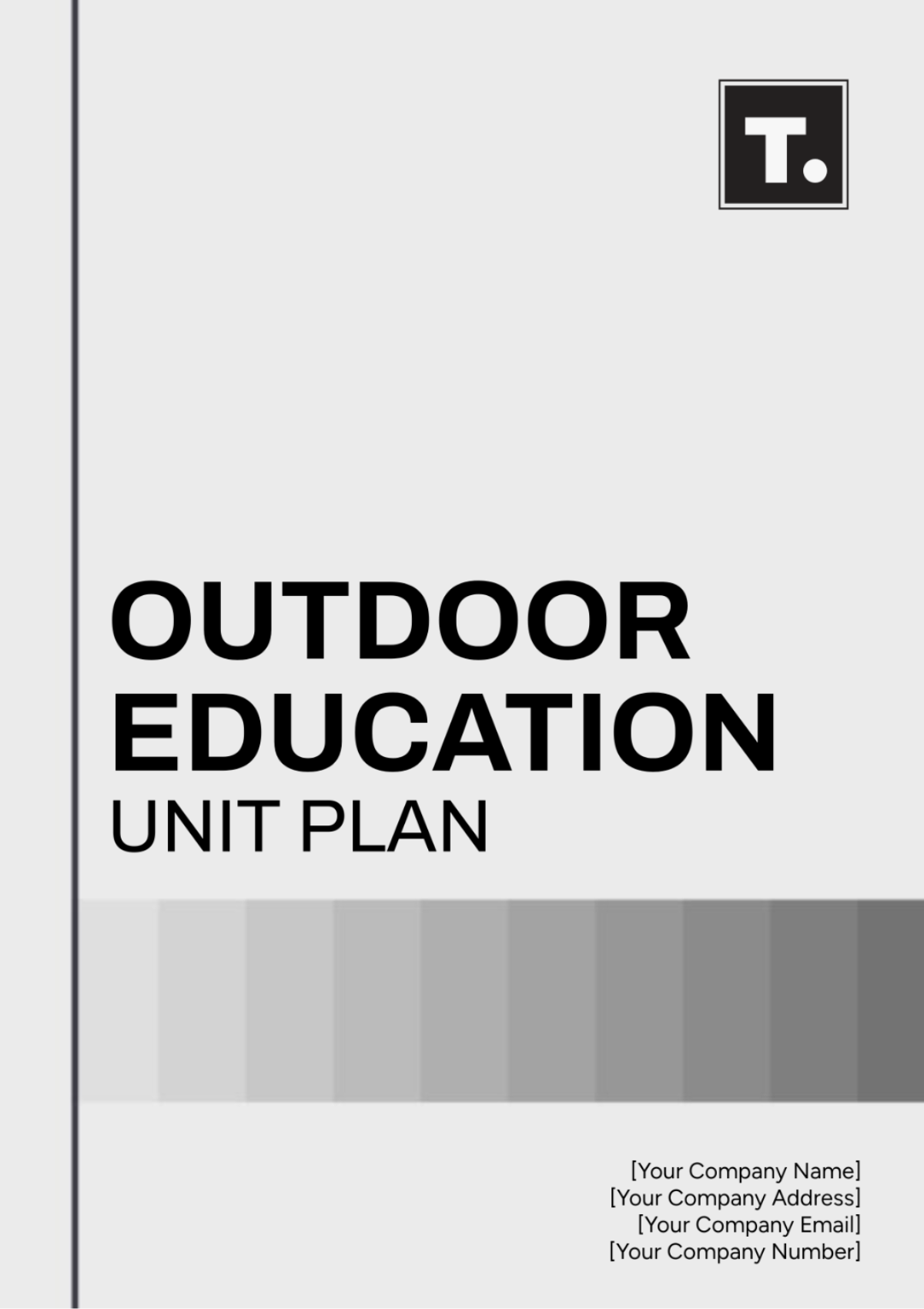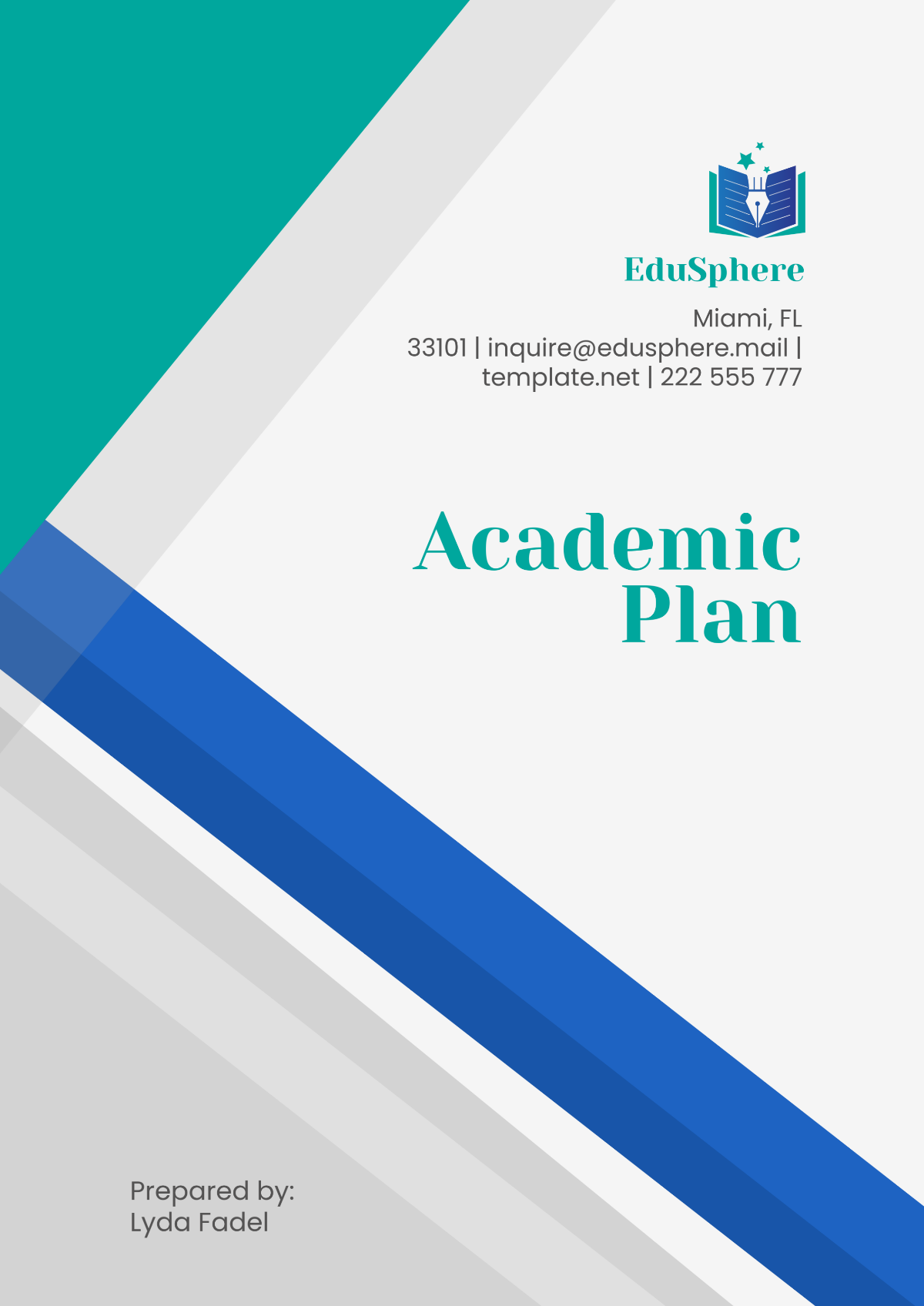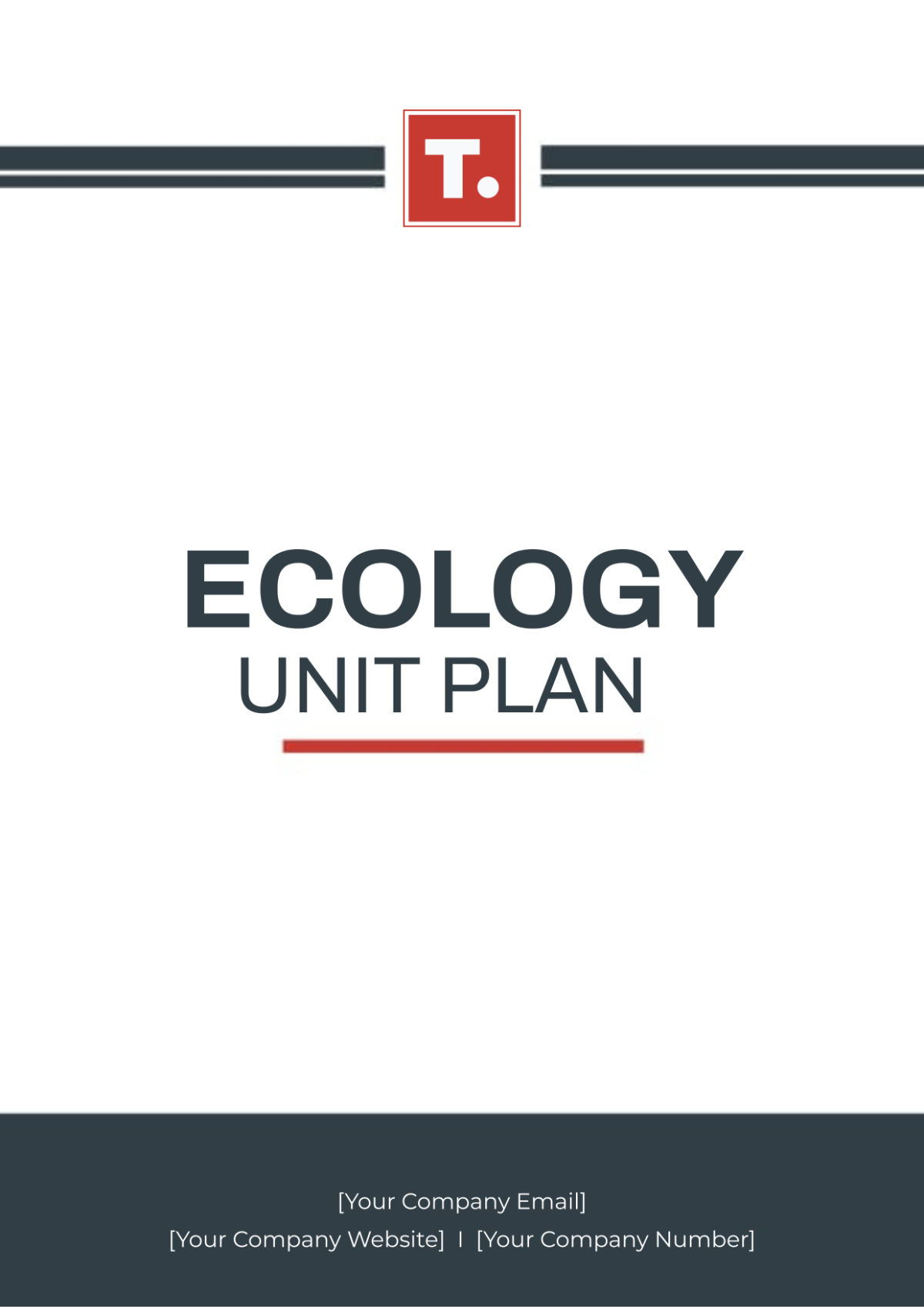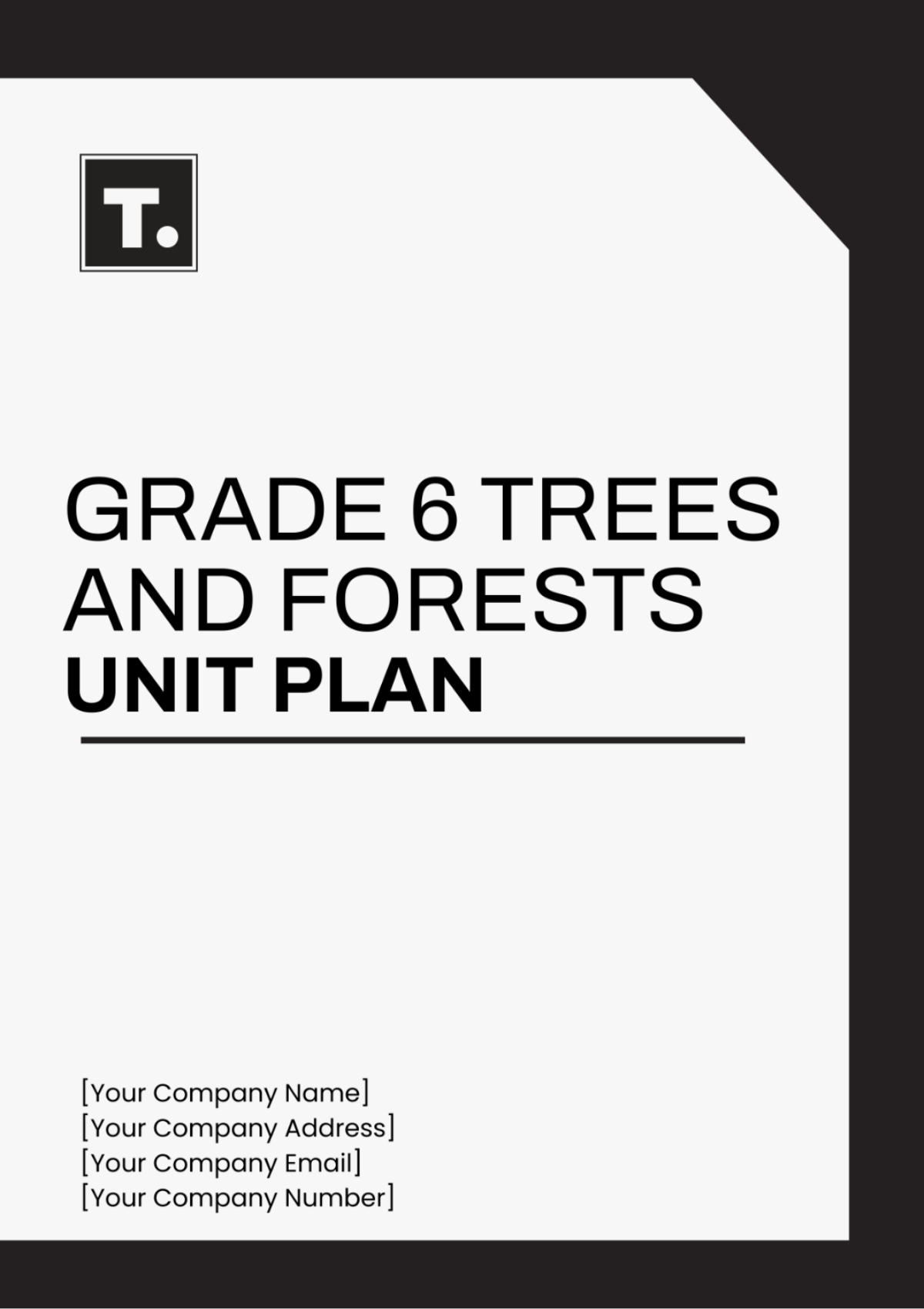Ecology Unit Plan
Prepared by: | [YOUR NAME] |
Subject: | Science - Ecology |
Topic: | Ecology and Environmental Science |
Date: | [DATE] |
I. Unit Overview
Grade Level: 9th Grade
Unit Duration: 6 weeks
Unit Summary:
This unit is designed to introduce students to the principles of ecology, the study of interactions among organisms and their environments. Students will explore ecosystems, food webs, energy flow, biogeochemical cycles, population dynamics, and human impact on the environment. The unit aims to foster a deeper understanding of the natural world and the importance of conservation.
II. Unit Objectives
By the end of this unit, students will be able to:
Define key ecological concepts and terminology.
Describe the structure and function of various ecosystems.
Explain the flow of energy through food chains and food webs.
Understand biogeochemical cycles and their importance.
Analyze the factors that influence population dynamics.
Assess the impact of human activities on the environment.
Propose solutions for environmental conservation and sustainability.
III. Standards Alignment
NGSS: HS-LS2-1, HS-LS2-2, HS-LS2-6, HS-ESS3-1, HS-ESS3-4
IV. Essential Questions
What are the basic components and functions of ecosystems?
How do energy and nutrients flow through an ecosystem?
What roles do different organisms play in an ecosystem?
How do human activities affect the environment and biodiversity?
What can individuals and communities do to protect and preserve ecosystems?
V. Key Vocabulary
Ecosystem
Biodiversity
Food Web
Trophic Level
Biogeochemical Cycle
Population Dynamics
Habitat
Niche
Sustainability
Conservation
VI. Lesson Plans
A. Lesson 1: Introduction to Ecology
Objectives: Students will understand the basic principles of ecology and the levels of ecological organization.
Materials: Textbook, interactive whiteboard, videos on ecology basics
Activities:
Warm-up: Discuss what students already know about ecology.
Direct Instruction: Presentation on ecological principles and levels of organization (individual, population, community, ecosystem, biome, biosphere).
Group Activity: Create a visual chart of the levels of ecological organization.
Discussion: Reflect on the importance of studying ecology.
Assessment: Exit ticket with key concepts from the lesson.
B. Lesson 2: Ecosystems and Biomes
Objectives: Students will identify different types of ecosystems and biomes, and describe their characteristics.
Materials: Biome charts, ecosystem models, research resources
Activities:
Warm-up: Quick review of previous lesson’s concepts.
Direct Instruction: Overview of major biomes (tundra, forest, grassland, desert, aquatic).
Research Activity: In groups, students research a specific biome and present their findings.
Interactive Activity: Match ecosystems to their corresponding biomes.
Assessment: Group presentations and a short quiz.
C. Lesson 3: Energy Flow in Ecosystems
Objectives: Students will understand how energy flows through ecosystems via food chains and food webs.
Materials: Diagrams of food chains/webs, interactive simulations
Activities:
Warm-up: Brainstorm how energy enters and moves through ecosystems.
Direct Instruction: Explain producers, consumers, and decomposers; trophic levels.
Interactive Simulation: Use online tools to build food chains and webs.
Discussion: Analyze the stability and complexity of food webs.
Assessment: Worksheet on food chains and food webs.
VII. Assessments
Formative Assessments: Quizzes, exit tickets, group activities, and class discussions.
Summative Assessments: Unit tests, research projects, and presentations.
VIII. Resources
Textbooks: Campbell Biology, Miller & Levine Biology
Websites: Green Earth Academy Website, National Geographic, NASA Climate Kids
Videos: Documentaries on ecosystems, TED Talks on environmental issues
Articles: Scientific journals and articles on ecology and conservation
IX. Differentiation
For Advanced Learners: Independent research projects on current environmental issues.
For Struggling Students: Simplified reading materials and additional one-on-one support.
For ELL Students: Bilingual resources and visual aids.
X. Extension Activities
Field Trip: Visit a local nature reserve or national park.
Guest Speaker: Invite an ecologist or environmental scientist.
Service Project: Organize a community clean-up or tree-planting event.
XI. Conclusion
This unit has equipped students with a profound understanding of ecology, highlighting the intricate connections that sustain life on Earth. Through exploration of ecosystems, energy flow, and human impact, students have developed a deeper appreciation for environmental conservation. Empowered with knowledge and awareness, they are poised to become advocates for sustainability in their communities and beyond.


